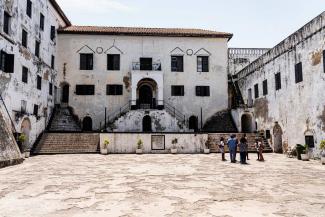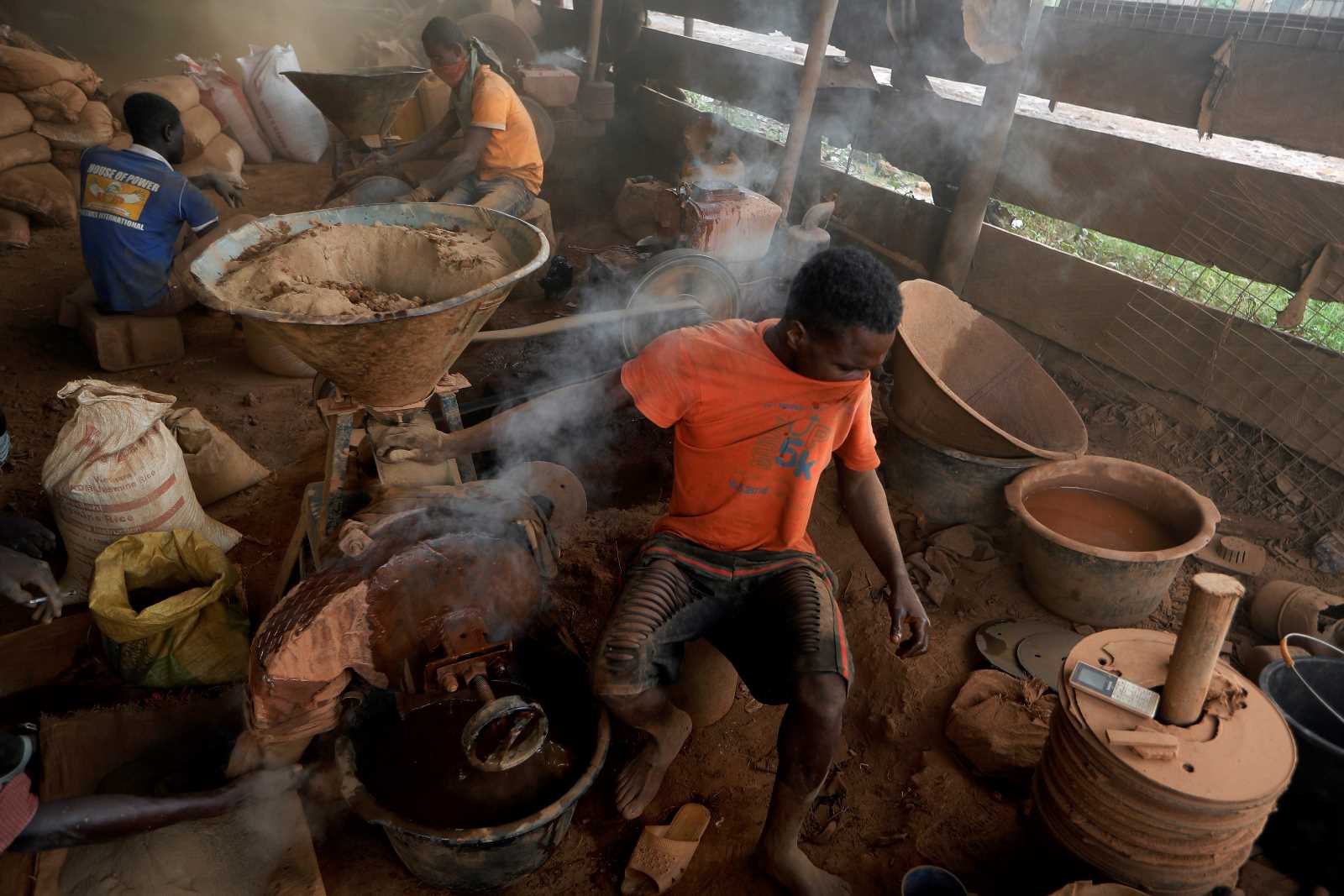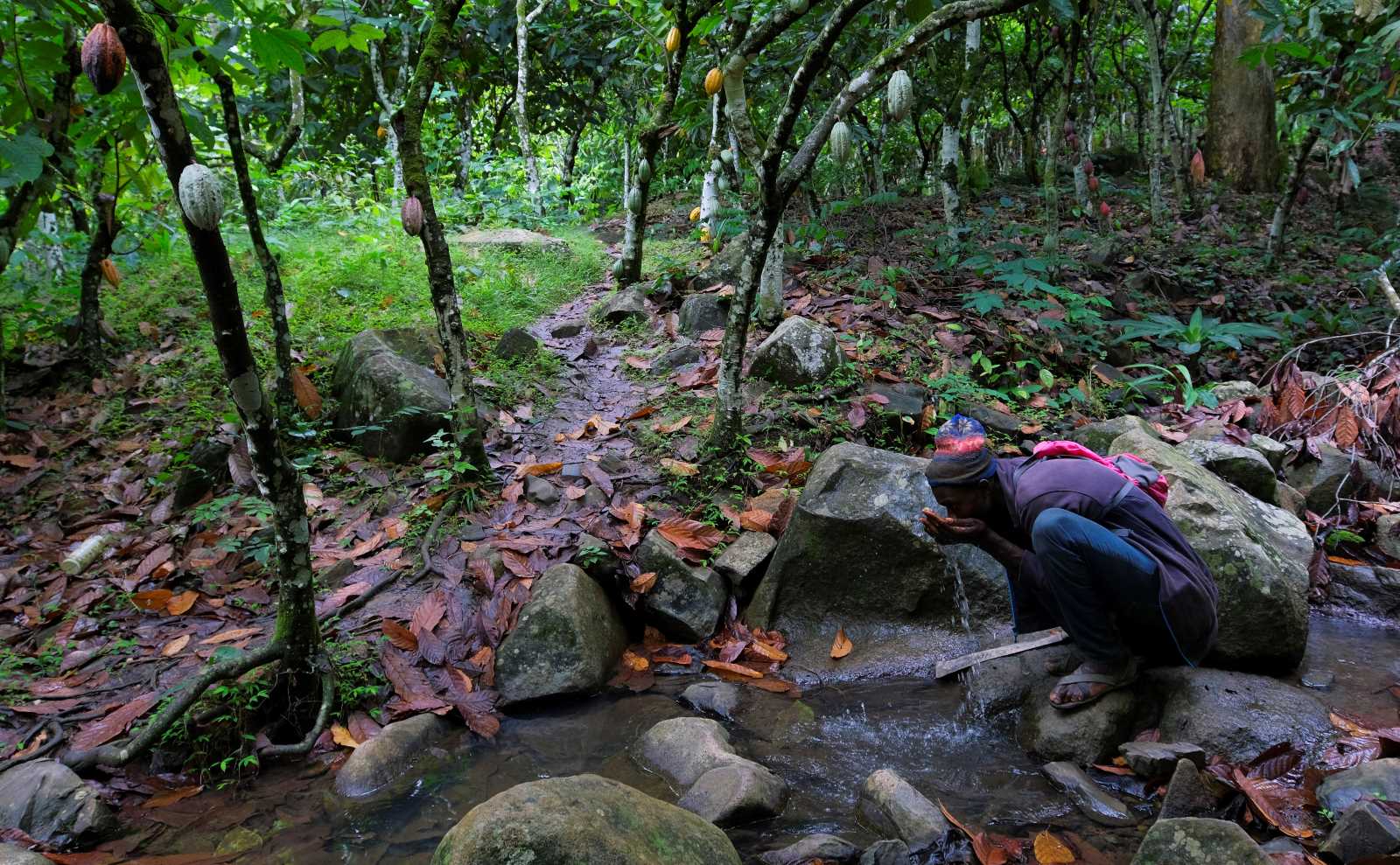Diaspora tourism
Travelling to understand your own history

Ghana has a lot to offer tourists: The West African country is home to a wide variety of landscapes and wildlife, along with a rich cultural heritage – from historical sites and traditional arts and crafts to food, music and dance. Tourism contributes to Ghana’s economic performance and creates numerous jobs for locals. International arrivals alone generated $ 3.8 billion in 2023, according to Ghana’s Ministry of Tourism, Arts and Culture.
The Ghanaian tourism industry has been increasingly courting a special target group for several years: the international diaspora. The initial spark for this was the “Year of Return, Ghana 2019” (YOR19) campaign, launched by Ghanaian President Nana Akufo-Addo in 2018 in Washington during an appearance before members of the African-American community in the United States.
YOR19 featured events like conferences, concerts, sporting events, fashion shows and visits to heritage sites. The programme was intended to connect people of Ghanaian origin in the diaspora with their historical and cultural roots – and boost Ghana’s economy, particularly the tourism sector. The timing was chosen carefully: 2019 marked the 400th anniversary of the start of the slave trade from Africa to America.
Other policies have driven Ghana’s homecoming tourism industry too. In 2001, Ghana’s Parliament allowed dual citizenship for people of Ghanaian descent who hold citizenship abroad. The policy has attracted thousands of people from Europe and other places in search of a new home. Moreover, a programme was introduced that allows citizens of Barbados and Guyana to enter Ghana for 90 days without a visa. Ghana has extended the same invitation to the people of Trinidad and Tobago.
Moving travel experiences
In recent years, many people from the diaspora have taken the opportunity to research their own origins in Ghana. “Essentially, they come here to reconnect with their ancestral roots and gain insights into the historical realities of the brutal slave trade,” says Victoria Odoom, Deputy Director of the Ghana Tourism Authority in the Eastern Region. Many diaspora tourists are interested in tours that focus on historical sites of the transatlantic slave trade, such as the forts of Elmina and Cape Coast in the Central Region.
When visiting dungeons, castles and forts, diaspora tourists often appear to be deeply moved by their ancestors’ struggles, explains Abigail Serwaa Owusu Ansah, Senior Marketing Officer at the Ghana Tourism Authority headquarters in Accra. She recounts a journey with some visitors who wanted to trace their roots from the city of Tamale in the Northern Region through western and central regions of the country and finally to Cape Coast, one of the most important West African harbours from which slaves were shipped to America. “It was evident from their facial expressions that they were overwhelmed with emotions and sorrows,” Ansah recalls.
Of course, travelling to the coast of West Africa also has its cheerful side, for example when tourists learn about traditional customs, music and dance. Ghana’s vibrant festivals, such as the Homowo Festival near the capital Accra and the Bakatue Festival in the Central Region, play an important role in showcasing the country’s diverse traditions. They also serve as a platform for diasporans to connect with local communities. Also worth mentioning are the biennial Panafest (Pan-African Historical Theatre Festival) and the Adae Festival to commemorate the ancestors.
Tourism boosts the economy
Abeiku Aggrey Santana, a radio personality and tourism operator, says that many diaspora tourists have read and heard a lot about Ghana and the struggles Africans faced during the slave trade era. They now come to Ghana to see for themselves. Their visits have significantly boosted the country’s tourism sector, says Santana. “Ghana wouldn’t have developed up to this stage without homecoming tourism,” he claims. “Tourist attractions or sites are not for free; visitors must pay a fee to be able to access them. This helps our local economy and raises productivity because visitors reserve lodging and make food purchases, both of which generate revenue for the government through taxes,” he adds.
Tourism companies benefit from the fact that they can offer a wide range of services tailored to the expectations and needs of home-comers. These visitors come from widely divergent geographical, ethnic and socio-economic backgrounds. According to a report by the Ministry of Tourism, Arts and Culture and the Ghana Tourism Authority, the US, Nigeria and UK were the top contributors to international arrivals from 2019 to 2023. Germany ranked fourth in 2023. Visitors include students and historians from the US, the Caribbean and Europe who come to Ghana to deepen their understanding of African history and culture.
In the “Year of Return” 2019, the Ghana Tourism Authority registered 1.13 million international arrivals, 18 % more than in 2018. The number of visitors at important tourist attractions increased too. Cape Coast Castle, for example, recorded an increase from around 75,000 in 2018 to more than 88,000 in 2019. The fortress is one of the most important roots tourism destinations for the African diaspora. Slaves were held there before being shipped to America.
Recovering from the pandemic
Due to the Covid-19 pandemic, the number of foreign visitors fell sharply in the following years. It reached pre-pandemic levels again in 2023. The upward trend is a promising sign for the industry’s recovery from Covid-19 and potential growth in subsequent years.
While it is hard to estimate how much homecoming tourism exactly contributes to Ghana’s economy, it is safe to say that the YOR19 campaign did help draw attention to the country as a tourist destination. For instance, several celebrities visited the country in 2019, including model Naomi Campbell and actor Idris Elba. Not to be underestimated is the fact that many diaspora tourists report on their experiences on social media, drawing attention to Ghana.
The influx of visitors also has an impact on sectors other than tourism. For example, the growing demand has led to hotels and resorts being renovated or newly built, which benefits the local economy.
Inadequate infrastructure
Despite significant progress, challenges persist. A major issue is infrastructure development. Many tourist attractions are in rural areas that lack basic infrastructure such as roads, electricity and water. This makes it difficult for tourists to access these sites, leading to frustration and disappointment.
Coordinated efforts are therefore needed to realise the full potential of tourism in Ghana and homecoming tourism in particular. Development strategies should focus on enhancing tourism infrastructure, promoting cultural heritage sites and engaging local communities. To achieve this, government bodies, local authorities and the private sector should work together even more closely.
Links
Mensah, I., 2022: Homecoming events and diaspora tourism promotion in emerging economies: The case of the Year of Return 2019 campaign in Ghana. In: Marketing tourist destinations in emerging economies. Palgrave Studies of Marketing in Emerging Economies.
https://www.researchgate.net/publication/356596781
Ministry of Tourism, Arts and Culture Ghana, Ghana Tourism Authority: 2023 Tourism Report: Strong recovery.
https://ghana.travel/media-centre/
Dasmani Laary is a journalist in Ghana.
laarygna@gmail.com











